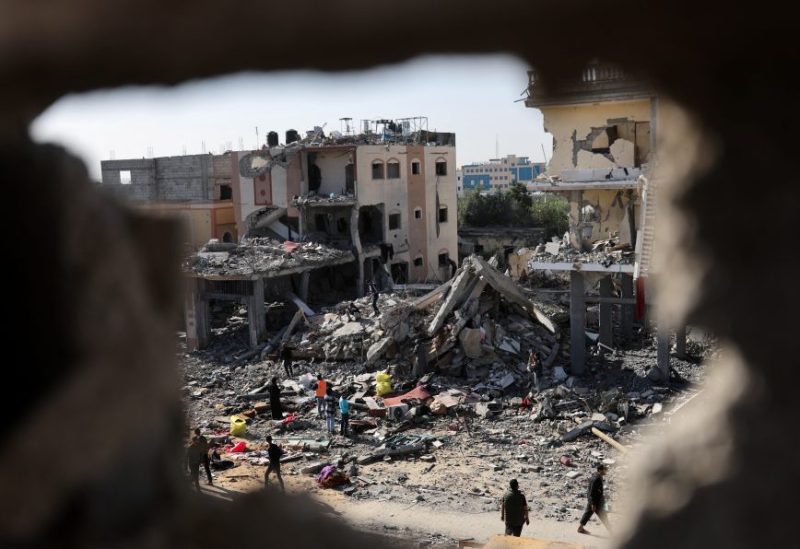
Palestinians stand among the rubble of houses destroyed in an Israeli strike during the conflict, amid the temporary truce between Hamas and Israel, in Khan Younis in the southern Gaza Strip November 24, 2023. REUTERS/Ibraheem Abu Mustafa
High-level diplomatic sources revealed to “Sawt Beirut International” that attention is now directed towards completing the prisoner exchange deal between Hamas and Israel and its implications on the possibility of achieving a comprehensive ceasefire.
Currently, despite the ceasefire, the war is deemed ongoing, and it’s challenging for Israel to agree to a ceasefire without achieving its declared objectives. However, the prisoner file might lead Israel to accept a ceasefire, but not immediately.
The sources indicated that the warring parties recognize the underlying factors shaping their positions regarding the prisoner exchange and the ceasefire. The humanitarian crisis has reached its peak. The Americans and Israelis have no choice but to find ways to halt the war. Therefore, the prisoner swap is likely to serve as a gateway to ending the war and contemplating the post-war phase.
The sources suggested that soon, the United Nations Security Council might issue a resolution that addresses Gaza’s situation and ensures its security. This resolution might resemble the international model used in dealing with the situation in southern Lebanon after the 2006 war, involving the deployment of international forces, similar to Resolution 1701 concerning Lebanon.
So, the international force would be akin to the UNIFIL force in the south. Yet, it’s not clear whether its mission will fall under Chapter Six or Chapter Seven. The core nucleus of this force would be Turkish-Egyptian, and its mission is to ensure Gaza’s security and the security of the access points leading to it. However, the political leadership for the Gaza region remains unclear. So far, Iranian influence remains the strongest within Gaza due to various factors linked to Iran’s extensions, support, and control.
While Iran stands as the dominant force in Gaza, Saudi Arabia will play a significant role in establishing a political solution for Gaza. Additionally, Egypt, Qatar, with the latter funding Gaza’s reconstruction and providing economic support, will also have roles to play. Qatar, particularly, maintains a distinct relationship with Hamas
Therefore, if Israel allows the reconstruction of Gaza and doesn’t exert pressure to hinder the delivery of construction materials, rebuilding the area would be on the table immediately upon reaching a resolution.
There are international doubts, according to sources, about Israel permitting the reconstruction of the eastern zone of Gaza because it doesn’t want Palestinians to return there. Hence, the destruction of hospitals, crucial in any return of those displaced from that area. While the southern part of Gaza isn’t of great concern to Israelis, the north holds more significance due to its proximity to settlements. The north holds strategic and economic importance for Israel.
If negotiations succeed in producing a resolution akin to Resolution 1701, it would imply that Iran’s allies face the same fate across the region. Their containment and surveillance would become an international responsibility.